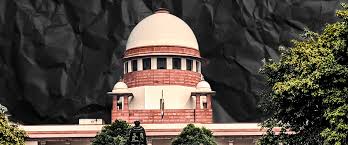CASE COMMENTARY ON BIJOE EMMANUEL V. STATE OF KERALA (1986) 3 SCC 615
AUTHOR – SIDDH ANAND, STUDENT AT CAMPUS LAW CENTRE, FACULTY OF LAW, UNIVERSITY OF DELHI
Best Citation – SIDDH ANAND, CASE COMMENTARY ON BIJOE EMMANUEL V. STATE OF KERALA (1986) 3 SCC 615, ILE JUDICIAL AND LEGAL REVIEW, 1 (1) of 2023, Pg. 120-122, ISBN – 978-81-961120-0-4.
Abstract
Bijoe Emmanuel v. State of Kerala is a landmark judgment in Indian constitutional law that affirmed the fundamental right to freedom of expression and conscience, especially in the context of religious beliefs and practices. This judgment is significant as it upheld the importance of the freedom of expression and conscience as a core value of the Indian Constitution, and reinforced the principle that individuals have the right to hold and express their beliefs, even if they are in conflict with the majority or the state. It also emphasized the need for tolerance and respect for diversity in a democratic society. Furthermore, this judgment has been cited in several subsequent cases where the freedom of expression and conscience has been challenged, and has been instrumental in shaping the jurisprudence around these fundamental rights. It is an important precedent for ensuring that the constitutional values of freedom and democracy are protected and upheld in India.
KEYWORDS- National Anthem, Infringement of Fundamental Rights, Article 19, The Prevention of Insults to National Honour Act, Reasonable restrictions, Jehovah’s Witnesses, Religious belief.
